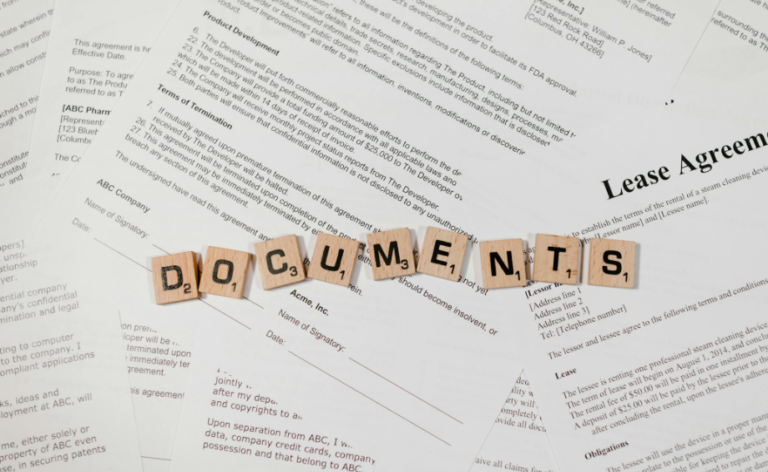Probate (After Death For Texans) - Simplified
Stop stressing. Allow yourself to grieve. Let us relieve you of the heavy lifting.
Don’t go looking for the cheapest attorney and stop letting stress win out during this time of mourning and reflection.
Instead, hire us to guide you, to do the heavy lifting, to reduce your stress, and to wrap up the estate in a timely and efficient manner so that you can focus on what truly matters.
We’re neither the cheapest (why would you want to “cheap-out” on something this important), nor the most expensive (no one wants to get taken advantage of).
The Mike Massey Law Difference

5 Star Ratings
Your community has given us over 500 5-star ratings, and you’ve probably read many.

Upfront & Transparent Pricing
Because you deserve that much.

We Simplify The Complex
Because the more you understand, the better job we have done.

Thousands of Texans Served
We've served thousands of Texans, so we're firmly established, tried & true.

Service with a Smile
We service our clients with love and compassion, like you are part of our family.

Not the most expensive
We're neither the cheapest (why would you want to "cheap-out" on something this important), nor the most expensive (no one wants to get taken advantage of).

Free Phone Consults
Speak directly with an attorney BEFORE you hire us.

Smooth Process
Our smooth process reduces stress & anxiety.
Why Choose Mike Massey Law for Probate

5 Star Ratings
Your community has given us over 500 5-star ratings, and you’ve probably read many.

Work Directly With Your Attorney:
You'll have direct access to your attorney, not just some admin person.

Empathy:
We care about you and will help you during this difficult time.

Outline & Expectations:
Our attorney outlines the process & expectations.

Free Phone Conults:
Speak directly with an attorney before you hire us.

Upfront Flat Fee Pricing
Upfront Flat Fee Pricing for most options, instead of the “billed hourly” black hole.
Over 500 5 Star Reviews

Your Problems... SOLVED!
Probate (Post-Death):
Someone has passed away and you’re in charge of wrapping up their estate. You’ve probably never been an executor or trustee before, you want some hand-holding, you don’t want some cheap attorney who might screw everything up, but you also don’t want to get ripped off by some crazy expensive attorney, and don’t want the process to drag on forever. If that rings a bell, then you should hire us to help you and guide you. With Mike Massey Law, you will: work directly with your assigned attorney; pay a flat-fee so you don’t get burned by billable hours; offer a very competitive rate (because we doubt you want the cheapest nor most expensive attorney); be treated like family; and be able to wrap up the estate in an efficient manner. Book a free consult with one of the Texas probate attorneys at Mike Massey Law. BTW, your Texas neighbors have given us over 500 5 Star Reviews online.
Contesting an Estate - Estate Litigation:
Someone close to you has passed away, but unfortunately someone is trying to screw you out of your portion of the estate. Don’t let that happen. The deceit is killing you emotionally and financially. You have no idea how you’re going to afford an attorney. If you’re getting screwed out of at least $250,000, then you should hire the contested estate attorneys at Mike Massey Law. You don’t pay us a penny unless we win and recover money for you. That’s our “No Win? No Fee, Texas Guarantee!” You get to work directly with one of our attorneys rather than having to work through some gatekeeper admin person, and we treat you like family. We are not some high volume shop that treats you like a number or statistic. Your injures are real, you are important, and you deserve the trusted and aggressive contested estate attorneys at Mike Massey Law. BTW, your Texas neighbors have given us over 500 5 Star Reviews online.
Pricing

Very competitive pricing
We're neither the cheapest (because who would want the cheapest attorney) nor the most expensive (because you deserve more for less).

Upfront Pricing
We will tell you the exact cost upfront during our consultation, before you pay us a penny.

Transparent Pricing
We offer simple, easy-to-understand, flat-fee pricing for estate planning and probate, so no blackhole of billable hours filled with unpleasant surprises.

Contingency Fees
For personal injury and estate contests, we represent injured parties on contingency fee which means we do not get paid unless we win your case. We have a "No Win? No fee, Texas Guarantee."
Our Core Values

Just Earn Reviews & Referrals

Enrich Others

Systematize

Unite

Solve Problems
Books We've Written
latest Blog & news

If your phone disappeared today, could your spouse log in to pay bills, access family photos, or manage your online […]

Family life in Texas looks very different today than it did a generation ago. Blended families, long-term unmarried partners, shared parenting […]

The rapid expansion of online life has reshaped how property, identity, and value are defined. Digital wallets, monetized websites, cloud […]
Frequently asked Questions
Lorem ipsum dolor sit amet, consectetur adipiscing elit, sed do eiusmod tempor incididunt ut labore et dolore magna aliqua. Ut enim ad minim veniam, quis nostrud exercitation ullamco laboris nisi ut aliquip ex ea commodo consequat. Duis aute irure dolor in reprehenderit in voluptate velit esse cillum dolore eu fugiat nulla pariatur.
Lorem ipsum dolor sit amet, consectetur adipiscing elit, sed do eiusmod tempor incididunt ut labore et dolore magna aliqua. Ut enim ad minim veniam, quis nostrud exercitation ullamco laboris nisi ut aliquip ex ea commodo consequat. Duis aute irure dolor in reprehenderit in voluptate velit esse cillum dolore eu fugiat nulla pariatur.
Lorem ipsum dolor sit amet, consectetur adipiscing elit, sed do eiusmod tempor incididunt ut labore et dolore magna aliqua. Ut enim ad minim veniam, quis nostrud exercitation ullamco laboris nisi ut aliquip ex ea commodo consequat. Duis aute irure dolor in reprehenderit in voluptate velit esse cillum dolore eu fugiat nulla pariatur.
Lorem ipsum dolor sit amet, consectetur adipiscing elit, sed do eiusmod tempor incididunt ut labore et dolore magna aliqua. Ut enim ad minim veniam, quis nostrud exercitation ullamco laboris nisi ut aliquip ex ea commodo consequat. Duis aute irure dolor in reprehenderit in voluptate velit esse cillum dolore eu fugiat nulla pariatur.
About Probate:
Probate is the legal process that occurs after someone passes away, ensuring that their debts are paid and their assets are properly distributed. In Texas, probate can feel complex, but at Mike Massey Law, we’re here to guide you through every step. From validating the will to settling the estate, we make the process as smooth as possible, so you can focus on what matters most. Whether you’re an executor managing a loved one’s affairs or a family member seeking clarity on the process, we handle all aspects of probate with experience and compassion. We also manage contested estates, ensuring your loved one’s true intentions are honored and family disagreements are minimized. Probate doesn’t have to be overwhelming—our team is here to simplify it, handling the paperwork, court filings, and legal details with transparency and efficiency. Let us guide you through probate with confidence and ease.
About Small Estate Affidavits:
A Small Estate Affidavit is a useful probate shortcut in Texas for estates valued under a certain threshold, allowing heirs to inherit assets without the full probate process. At Mike Massey Law, we help eligible families leverage this simpler option to save time and expenses. This affidavit is a great tool when there’s no will, limited assets, and straightforward heirship, allowing you to bypass court hearings and formal administration. With our team’s guidance, we ensure all forms are completed correctly and filed efficiently, giving you peace of mind that every detail is handled. While a Small Estate Affidavit isn’t right for every situation, we’re here to assess whether this option is a fit for you and your family. Let us help you navigate the process so you can settle your loved one’s affairs in the smoothest way possible.
About Muniment of Title:
Muniment of Title is a unique probate option in Texas designed to quickly transfer a deceased person’s assets without the full probate process. If your loved one left a will and no outstanding debts, Muniment of Title can allow beneficiaries to inherit assets smoothly without a lengthy court process. At Mike Massey Law, we specialize in helping families determine if this option is a fit, ensuring that all requirements are met before filing with the court. This process is typically faster and less complex, but Texas courts have strict eligibility criteria. Our team is here to handle each step, from filing the petition to ensuring assets are properly transferred. Muniment of Title can simplify inheritance matters and honor your loved one’s wishes, and we’re here to make it as stress-free as possible for you and your family.
About Heirship:
Heirship in Texas is the legal process to determine a deceased person’s rightful heirs when no will is present. Establishing heirship is crucial to distributing assets fairly, especially in cases where multiple family members are involved. At Mike Massey Law, we help families navigate this often-complicated process with compassion and professionalism. Heirship involves gathering detailed family history, filing an application with the court, and presenting testimony to confirm relationships. We guide you through each step, from gathering necessary documentation to representing you in court, ensuring a smooth, clear path forward. Heirship determination not only identifies heirs but also protects your loved one’s legacy and prevents potential disputes down the line. Let us help you with the legalities, so your family can receive the assets they’re entitled to with minimal stress and maximum peace of mind.
book a meeting now
100% Privacy Guaranteed | *By submitting a form, you agree to receive text messages & emails.













